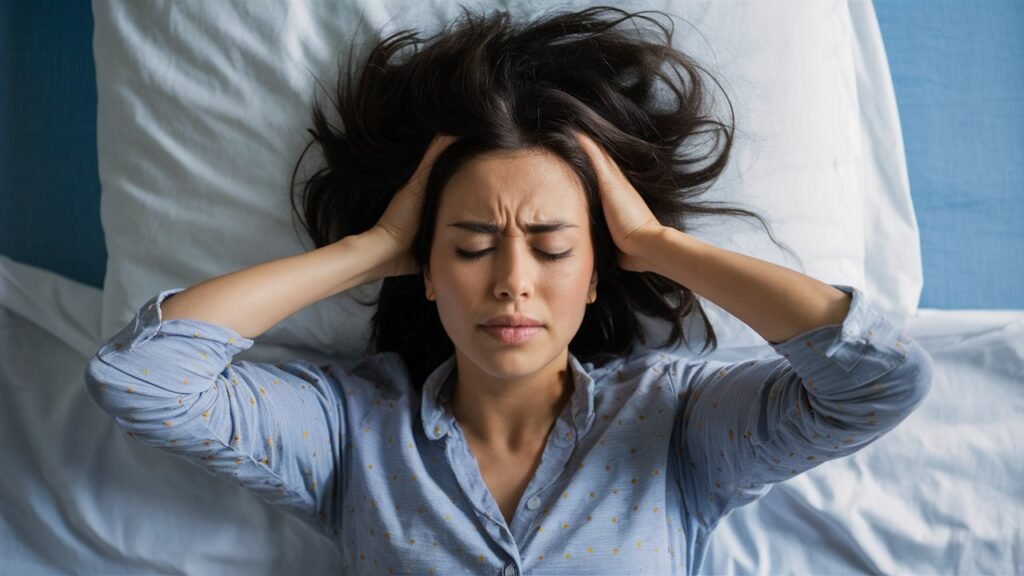Waking up with a headache can set a discouraging tone for the day ahead. Understanding the root causes behind these morning headaches can pave the way for effective prevention and management strategies. Let’s delve into the intricate web of factors contributing to this perplexing phenomenon.
Understanding Morning Headaches
As the name suggests, morning headaches occur upon awakening and range from mild discomfort to debilitating pain. They encompass various types, including tension-type headaches, migraines, and cluster headaches. Despite their prevalence, the exact mechanisms triggering these headaches remain elusive, often perplexing sufferers.
Sleep Quality and Headaches
The quality of sleep plays a crucial role in headache development. Sleep disturbances disrupt the natural sleep cycle, potentially leading to morning headaches. Each stage of sleep, from light to deep sleep, influences headache occurrence differently. Conditions like insomnia and sleep apnea exacerbate this relationship, highlighting the importance of addressing sleep disorders for headache management.

Sleep Position and Headache Incidence
Believe it or not, your sleep position can influence whether you wake up with a headache. Certain sleeping positions may strain neck muscles or impede proper blood flow, contributing to headache onset. Moreover, inadequate pillow support can exacerbate these issues. Opting for ergonomic pillows and adopting optimal sleep positions can mitigate morning headaches.
Dehydration and Morning Headaches
Dehydration can wreak havoc on your body; your head is no exception. Insufficient hydration levels during sleep can lead to morning headaches. As you slumber, your body loses fluids through respiration and sweat, underscoring the importance of maintaining adequate hydration throughout the night. Simple strategies like hydrating before bed can stave off dehydration-induced headaches.
Bruxism and Headache Development
The unconscious habit of teeth grinding, known as bruxism, can contribute to morning headaches. Clenching and grinding teeth during sleep strain jaw muscles and trigger tension-type headaches. Addressing bruxism through interventions like mouthguards can alleviate associated headaches and improve overall sleep quality.
Sleep Apnea and Morning Headaches
Sleep apnea, characterized by interrupted breathing during sleep, is a common culprit behind morning headaches. The repeated pauses in breathing deprive the brain of oxygen, leading to headaches upon awakening. Effective management of sleep apnea through lifestyle changes or medical interventions can alleviate morning headaches and enhance sleep quality.
Sinus Congestion and Morning Headaches
If you often wake up with a headache accompanied by sinus pressure, sinus congestion may be to blame. Allergens or irritants in the bedroom environment can exacerbate sinus congestion during sleep, leading to morning headaches. Nasal irrigation or using air purifiers can alleviate congestion and reduce headache frequency.
Caffeine Withdrawal and Headache Onset
For avid coffee drinkers, skipping your morning cup of joe can result in a pounding headache. Changes in brain blood flow and neurotransmitter activity cause caffeine withdrawal headaches. Gradually reducing caffeine intake and staying hydrated can help mitigate withdrawal headaches.

Nutritional Deficiencies and Headaches
Your diet plays a crucial role in overall health, including headache prevention. Nutrient deficiencies, such as magnesium or riboflavin, have been linked to increased headache frequency. Incorporating nutrient-rich foods into your diet and considering supplements under medical guidance can address potential deficiencies and reduce morning headaches.
Stress and Tension as Precursors to Morning Headaches
Stress is an inevitable part of life, but its impact on headaches shouldn’t be underestimated. Stress and tension can manifest as muscle tightness and trigger tension-type headaches upon waking. Stress management techniques like mindfulness or yoga can alleviate tension and reduce the frequency of morning headaches.
Alcohol Consumption and Headache Frequency
While a nightcap may seem relaxing, excessive alcohol consumption can disrupt sleep patterns and increase the likelihood of morning headaches. Alcohol-induced headaches stem from vasodilation and dehydration. Moderation is vital to minimizing alcohol-related headaches and promoting restful sleep.
Environmental Factors and Morning Headaches
Creating a conducive sleep environment is paramount for headache prevention. Factors such as room temperature, humidity levels, and exposure to allergens can influence sleep quality and headache occurrence. Optimizing your sleep environment with proper ventilation and allergen control measures can mitigate morning headaches.
Medication Side Effects and Morning Headaches
Ironically, some medications intended to alleviate headaches can paradoxically cause them. Certain medications, such as analgesics or antidepressants, may induce rebound headaches or other side effects. Consulting with healthcare professionals and monitoring medication usage can help manage medication-related headaches effectively.

Hormonal Imbalances and Morning Headaches
Fluctuations in hormone levels, particularly in women, can trigger morning headaches. Changes in estrogen levels during menstruation or menopause may influence headache onset. Hormonal therapies or lifestyle modifications tailored to hormonal fluctuations can help mitigate hormone-related headaches.
Dental Issues and Headache Onset
Dental problems like temporomandibular joint disorder (TMJ) can contribute to morning headaches. Oral health issues may lead to jaw clenching during sleep, exacerbating tension-type headaches. Seeking dental interventions such as mouth guards or orthodontic treatments can alleviate dental-related headaches.
Psychological Factors Contributing to Morning Headaches
The mind-body connection is undeniable, especially concerning headaches. Psychological stressors, such as anxiety or depression, can manifest as physical symptoms like headaches. Addressing underlying mental health concerns through therapy or relaxation techniques can alleviate morning headaches and improve overall well-being.
Conclusion
Morning headaches present a multifaceted challenge, but effective prevention and management strategies can be implemented by unraveling their underlying causes. Prioritizing quality sleep, hydration, stress management, and overall health can significantly reduce the frequency and severity of morning headaches, allowing you to wake up refreshed and headache-free. If morning headaches persist despite these interventions, seeking professional medical guidance is essential to uncovering and addressing any underlying health issues.







